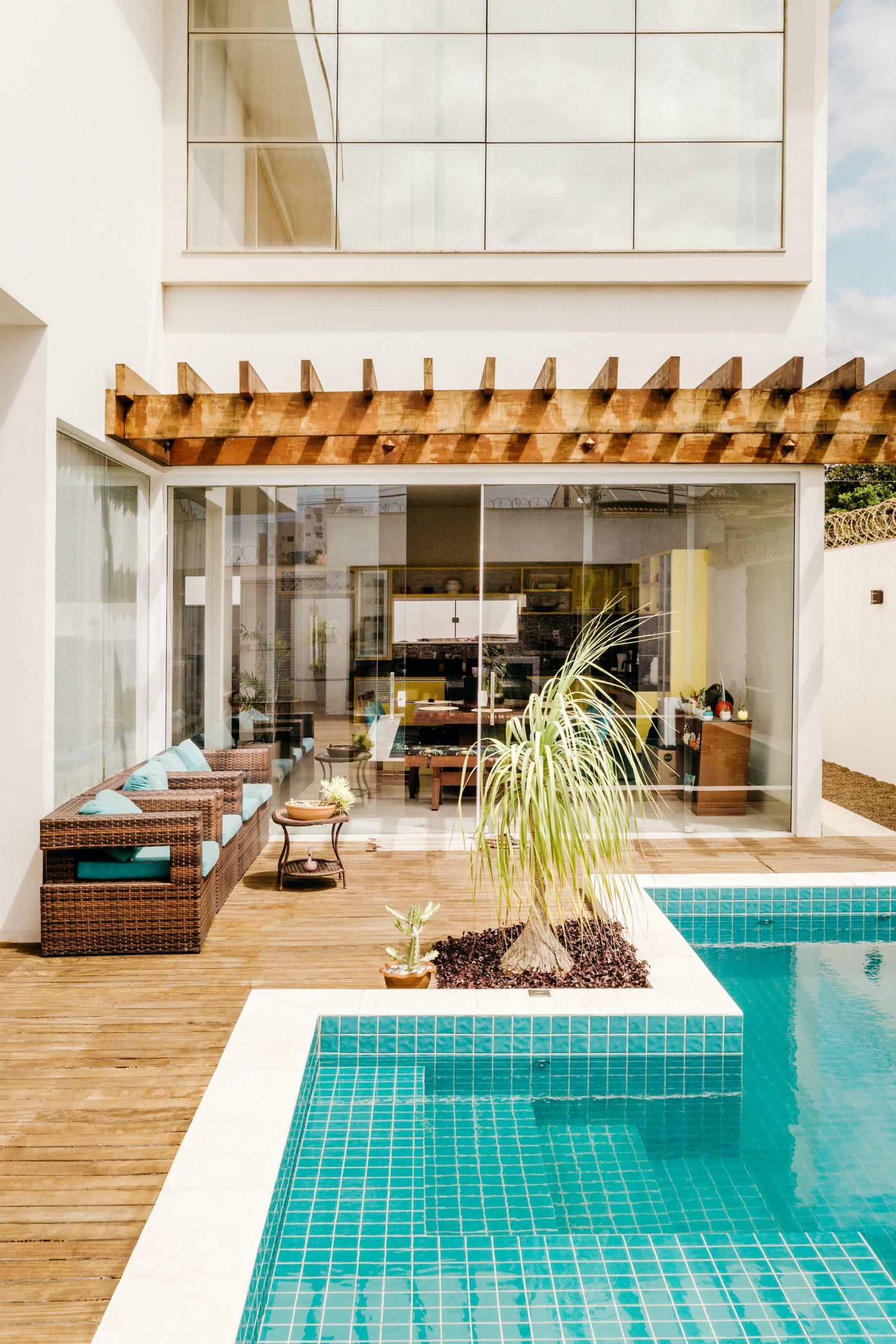The quality of your pool water, its proper functioning, and its durability over time depends on its proper maintenance. A swimming pool requires interventions and monitoring all year round, but, of course, especially during the summer season when it is frequently used. Regular maintenance, at least once a day, is necessary if you don’t want to see your swimming water deteriorate quickly. Let’s review the daily maintenance of your pool.
1. Controlling the pH of the water

The hydrogen potential (pH) is essential to know if your pool water is of good quality. The pH measures the acidity of the water. We say that water is acidic if its pH is between 0 and 6 and basic between 8 and 14. Around 7, the pH is neutral, as your pool water should be to be of good quality. The acidity of the water depends on its limestone content, which varies according to the region.
This can also vary according to the water treatment products you use, because of the outside temperature and also because of the frequentation of your pool. When the pH is not neutral, the water becomes cloudy and changes color. The acidity of the water leads to the development of limescale and algae in particular and participates in the deterioration of the material of the pool, such as the filtration system, the coating, etc.
To do this every day: check the pH level of the water, which should be between 7 and 7.4. If necessary, correct the pH with a specific product, pH+ when the water is too acidic, and pH- when it is too basic.
2. Controlling the level of chlorine in the water
For those who use chlorine, the most well-known and widely used water sterilizer, to disinfect their pool, it is essential to monitor its level daily to ensure the water quality and ensure healthy swimming. If the chlorine level is not high enough, your pool is not disinfected properly, and the water quality is not satisfactory. If, on the other hand, the chlorine level is too high, the water can become irritating to the skin of bathers.
Check the chlorine level in your pool water every day. Ideally, it should be between 1.5 and 2 mg/l. If necessary, readjust the chlorine level by adding your usual chlorine product in the skimmers or by proceeding with a “shock chlorine,” which consists in pouring this product directly into the pool for a shock treatment.
3. Cleaning the water

In addition to the daily monitoring of the water quality, it is essential to clean your pool on a regular basis, which is the only real guarantee of clean and healthy water. It also helps prevent equipment malfunctions, such as clogged filtration systems.
To be done every day: remove leaves, insects, in short, all the impurities which fall into your pool. This cleaning can be done “by hand” with an adapted net, but for more performance, the pool robot is the ideal solution for deep cleaning the water and the pool. Don’t forget to clean the skimmers as well.
4. Checking the water level
The water level of a pool varies according to the weather conditions and its use. In the summer, for example, the water level in the pool decreases due to evaporation from the heat and splashing from bathers. But you also need to make sure that a change in water level is not a sign of a larger problem with the operation of your pool, such as a leak.
If there’s not enough water in your pool, air will more easily enter the skimmers and may contribute to the deflation of your pool pump. On the other hand, an abnormally high water level prevents impurities from draining properly through the skimmers and contributes to cloudy and dirty water.
To be done every day: monitor the water level with your naked eye. Ideally, the water level should be at the halfway point of the skimmers. Use the pool pump in the “evacuation” position if there is too much water; otherwise, fill your pool or protect it with a tarp to avoid too much water evaporation.
5. Checking the filtration system of the pool

The filtration system, composed of a pump and a filter, is one of the most important elements of a pool. The system allows the water to regenerate itself: the pump sucks in the water and sends it to the filter to rid it of impurities. The cleaned water is then returned to the pool. During the summer months, and when there is a lot of swimming, it is advisable to extend the filtration time during the day, which is normally 8 to 12 hours continuously.
Looking for help?
Are you searching for a team of experts to clean your pool? Then, look no further because Aqua Pool & Spa Specialists are here to help you out with all your pool repair and maintenance needs. With over 10 years of experience in the pool cleaning industry.
They use innovative technology to take care of your pool, and this is why they are one of the leading experts in swimming pools in Australia. So, what are you waiting for? Give them a call today, and they will be more than delighted to take care of your pool and make it look clean and squeaky.

1 thought on “Top 5 Things To Do To Maintain Your Pool”